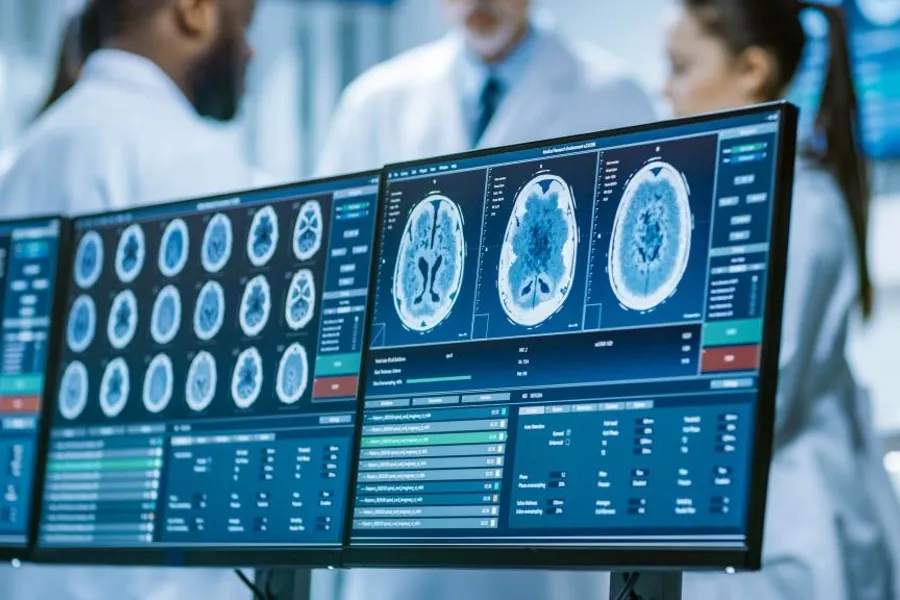Dissertation Erlend Skaga
In Januar 2021, Institute PhD fellow Erlend Skaga successfully defended his thesis Drug sensitivity and resistance testing of brain tumor stem cells for individualized functional precision medicine.
Publisert 19.08.2021
Sist oppdatert 23.03.2023

During his years as a PhD fellow, Dr. Skaga has presented his work in both national and international conferences. In the Annual Norwegian Neurosurgical meeting of 2016 his abstract was listed among the top four best presentation. The following year he was awarded the prize for best presentation. His work was also selected for oral presentation and plenary commentaries during the Society for Neuro-Oncology conference in the US in 2019. Dr. Skaga has been supervised by MD/PhD Einar O. Vik-Mo in the research group of Professor Iver A. Langmoen, Vilhelm Magnus Lab. The results of his work has been obtained in close collaboration with the Finnish Institute for Molecular Medicine at the University of Helsinki and the Helsinki University Hospital, Finland.
Glioblastoma (GBM) is the most common malignant brain tumor in adults. Despite treatment consisting of surgery, radiation and chemotherapy, survival is limited and usually do not extend beyond a year. A major challenge in the development of new treatments is the complex tumor heterogeneity between patients that may render an effective treatment for one patient and ineffective for another.
The aims of the thesis were to functionally profile glioblastoma stem cells (GSCs) in terms of drug sensitivity, and in turn develop new treatment strategies targeting GSCs in individual patients. This was undertaken using patient-specific cell cultures derived from surgical biopsies and automated high-throughput technology for drug sensitivity and resistance testing (DSRT) and drug sensitivity scoring of over 460 anticancer drugs.
We found an extensive intertumoral heterogeneity in the drug sensitivity patterns between the individual GSC cultures. This was observed in overall sensitivity to the drug collection, in sensitivity to different drug classes and to single drugs.
The results grouped GBMs into functional taxonomies based on drug sensitivity patterns and could also identify effective drugs for individual patients.
The preclinical workup of culture establishment, expansion of GSCs, DSRT, and data analysis was feasible within a turnaround time to allow clinical translation of individualized treatment.
A combination treatment consisting of nine drugs approved for non-oncological indications were also tested for efficacy in the individual GSCs, demonstrating an effect in around half of the tested cultures.
Overall, this work describes an extensive tumoral heterogeneity in drug sensitivity patterns in GBM and demonstrate how automated DSRT of patient-derived GSCs can identify treatment options for individual patients. The thesis forms the basis for a clinical trial targeting autologous GSCs in GBM using the DSRT-platform and for extension of methods to brain cancers in children.
Digital public defence: Erlend Skaga - Institute of Clinical Medicine (uio.no)